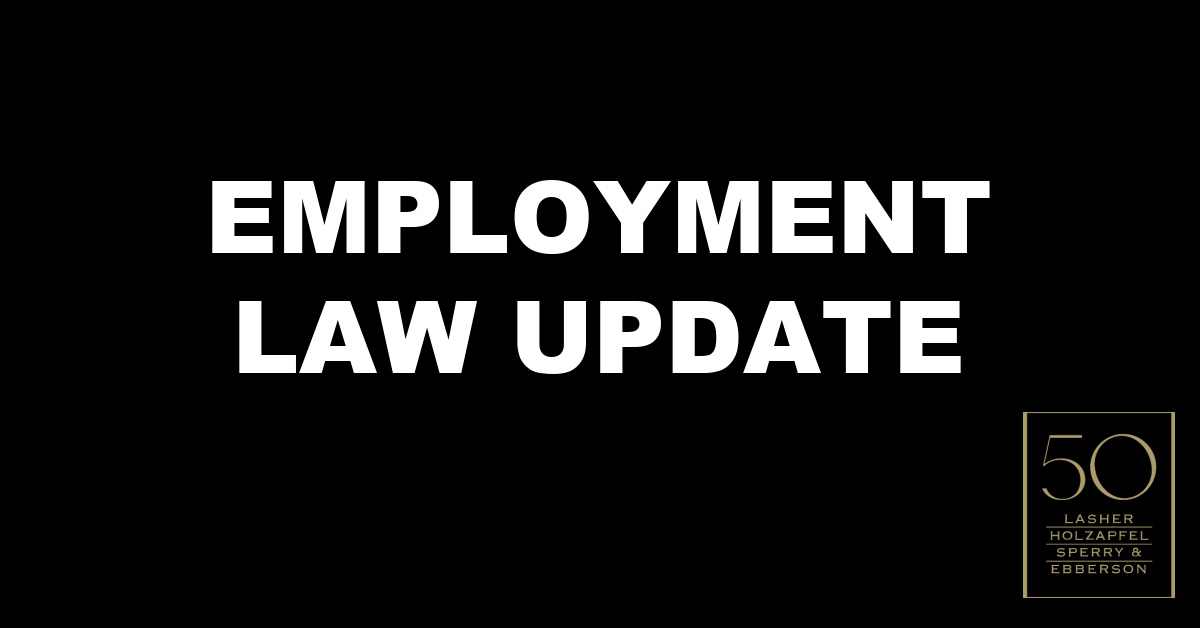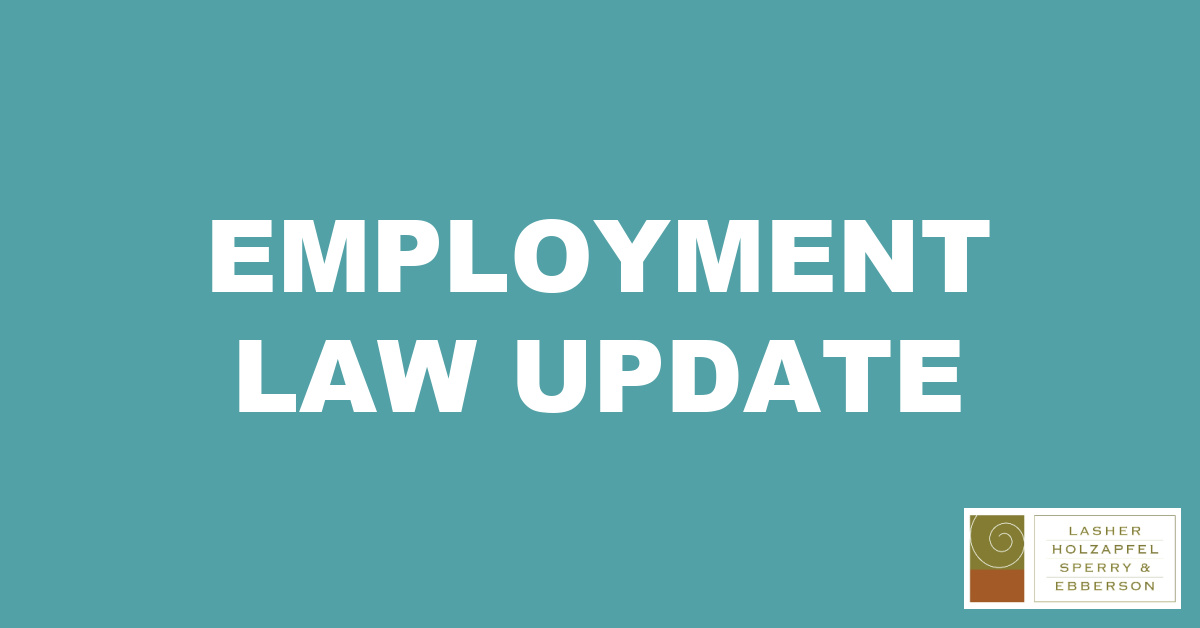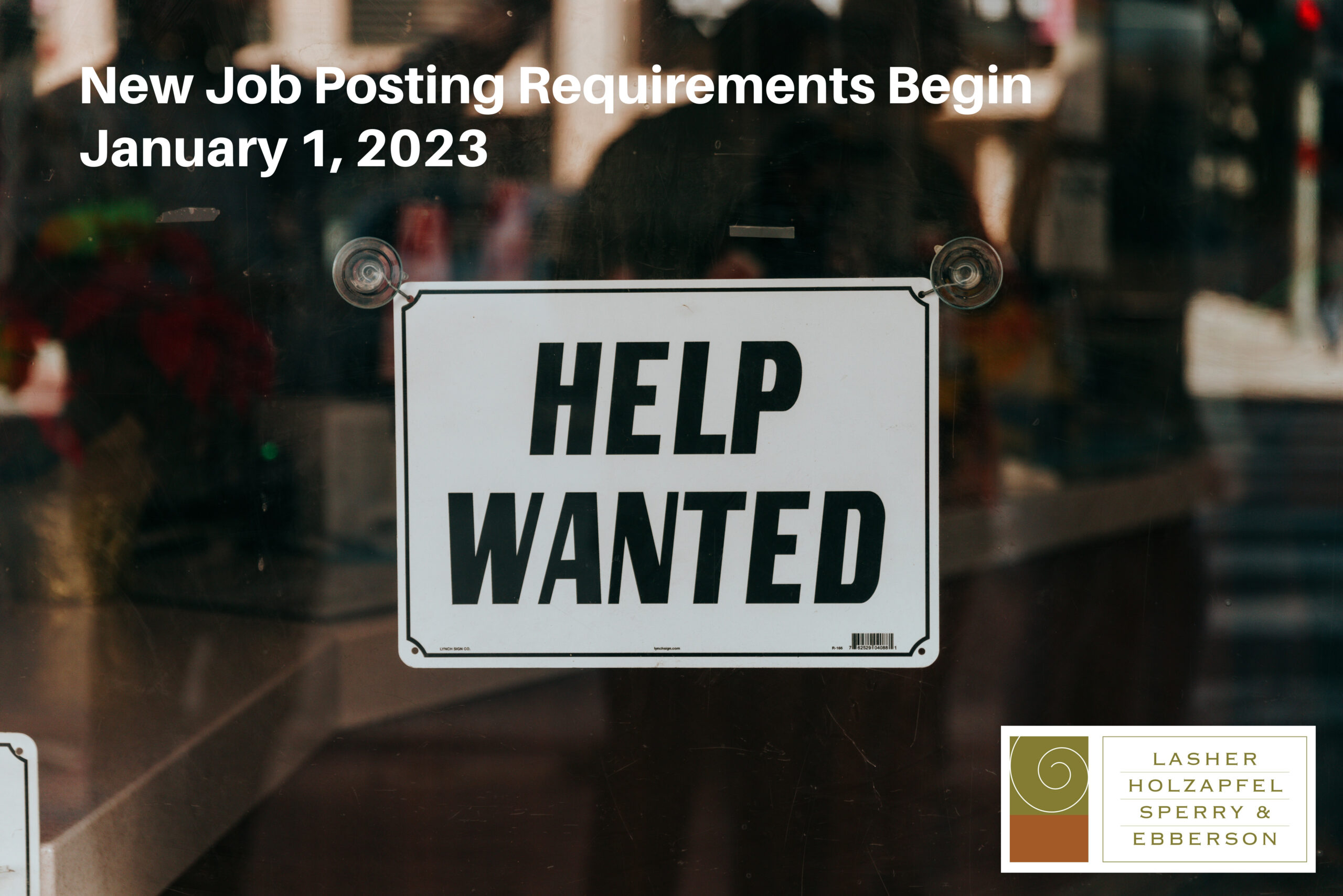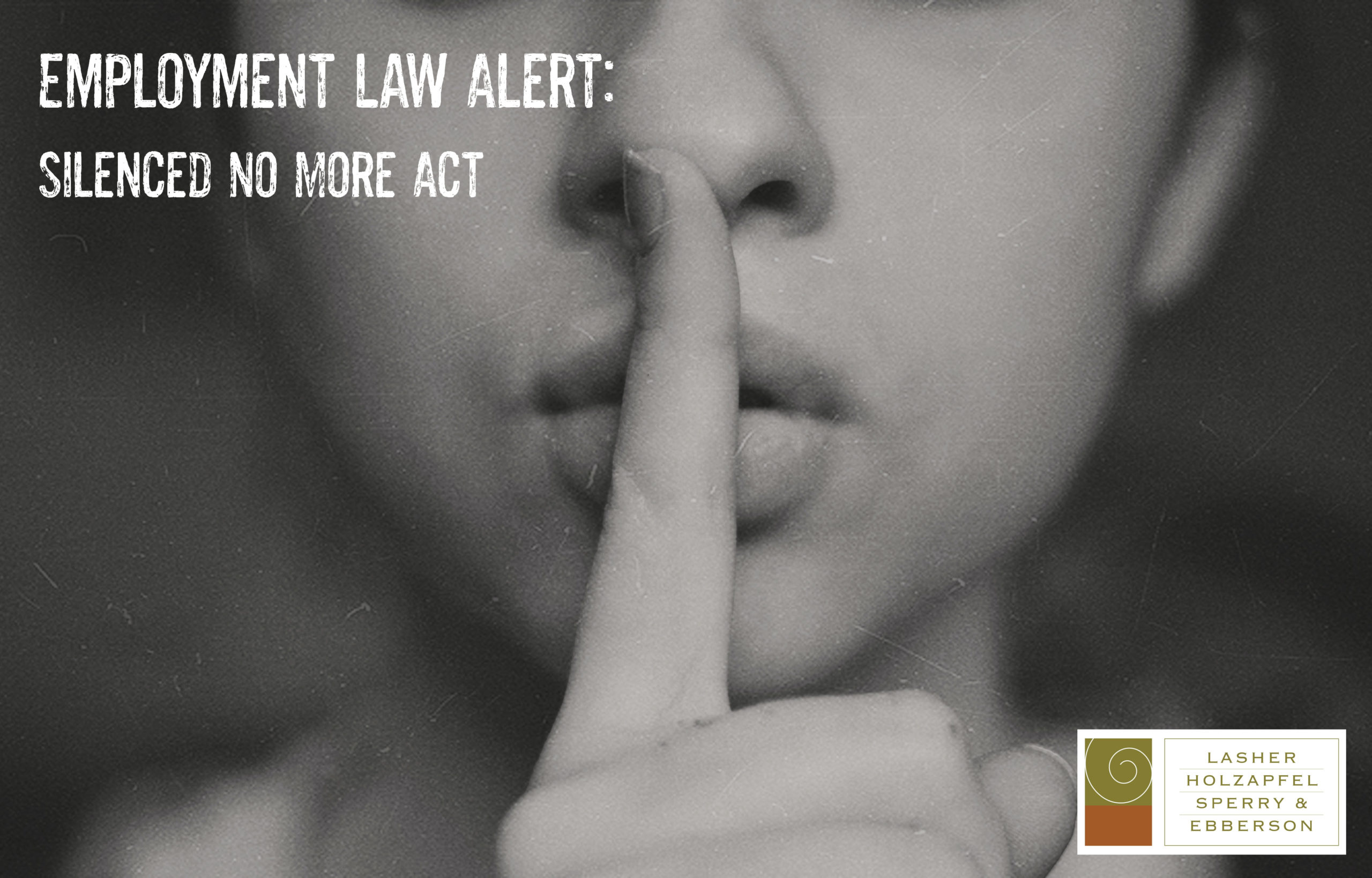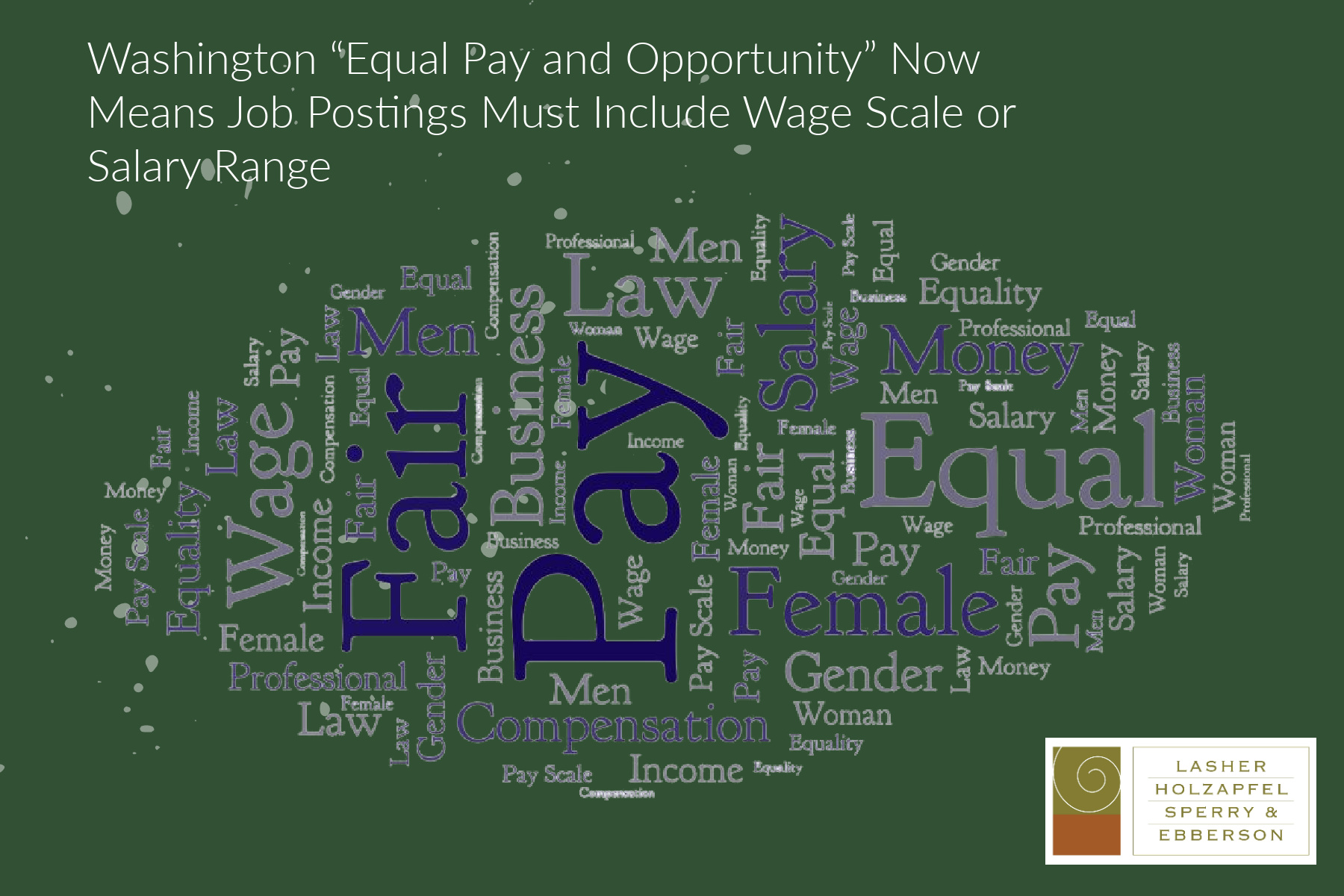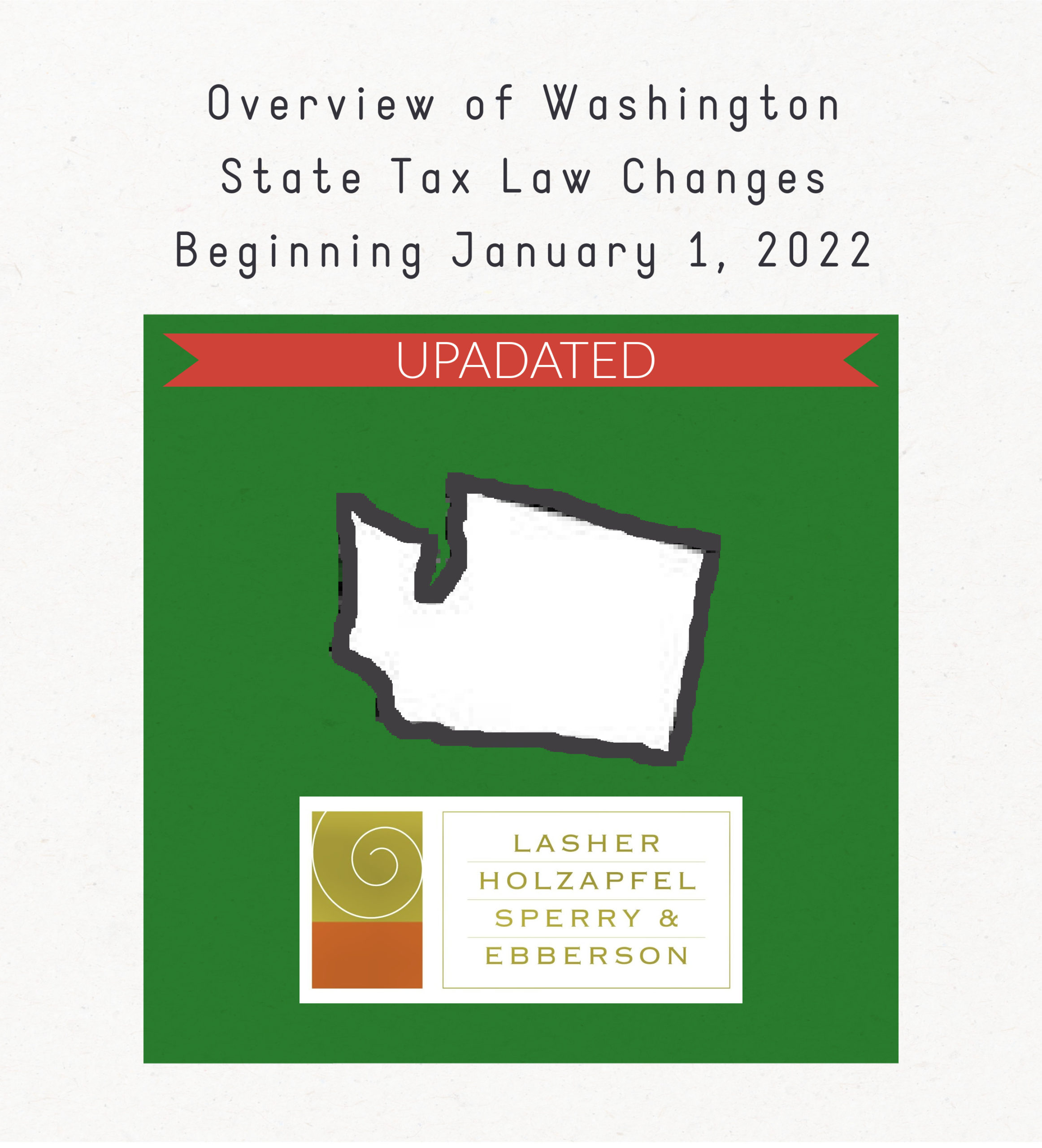News Category: Employment
Are You Protecting Your Workers From the Hazards of Wildfire Smoke?
With summer just around the corner, it is time for employers with outdoor employees to make sure they are complaint with Washington’s new wildfire smoke regulations. This winter, Washington Labor and Industries promulgated new permanent regulations requiring employers to take a number of steps to protect workers from the hazards of wildfire smoke. The new
Washington State Paid Sick Leave Updates for 2024
Paid sick and other leave benefits are changing in 2024. Construction workers, other than workers solely working in residential building construction, who do not reach the minimum 90 days of employment with a particular employer to be eligible to use paid sick leave will now be paid their accrued, but unused sick leave benefits following
2024 Washington Updates to Minimum Wage, Exempt Employees, and Noncompetes
Important developments are on the horizon for Washington State employers in 2024. Beginning on January 1, 2024, the minimum wage in Washington will go up to $16.28 per hour, up 3.4% from 2023 and the highest statewide minimum wage in the country. For employers in Seattle, SeaTac, and Tukwila you can expect an increase in
Employment Law Update: Two New Laws Expand Federal Protections for Both Pregnant and Nursing Workers
The Pregnant Workers Fairness Act (“PWFA”) takes effect on June 27, 2023, and requires private employers with at least 15 employees to provide reasonable accommodations to their employees for pregnancy, childbirth, recovery, and related medical conditions, including lactation. Such reasonable accommodations may include flexible hours, additional break time, and/or light work activity and must be determined via
Employment Law ALERT – New Job Posting Requirements Begin January 1, 2023
Beginning on January 1, 2023, all employers, with 15 or more employees (including employees in other states), engaging in any business, industry, profession, or activity in Washington (including recruiting for Washington-based employees) must disclose (i) a wage scale or salary range and (ii) a general description of benefits and other compensation on job postings that
Employment Law ALERT – New Seattle Independent Contractor Protections (ICP) Ordinance
For any business who uses independent contractors or has plans to hire an independent contractor who will be performing work in Seattle, an ordinance taking effect on September 1, 2022, impacts what information you must provide to the independent contractor at the start of the engagement and with each payment. The ordinance includes nearly every independent
Employment Law Alert: Silenced No More Act
Washington now prohibits nondisclosure and nondisparagement agreements between employers and employees relating to certain illegal conduct. The Silenced No More Act was signed into law this spring and makes void and unenforceable any provision in an agreement with a current, former, or prospective employee or independent contractor that bars the employee or contractor from “disclos[ing] or
Washington “Equal Pay and Opportunity” Now Means Job Postings Must Include Wage Scale or Salary Range
Beginning January 1, 2023, many Washington employers will be required to disclose the salary range and benefits in their job postings. Today, Governor Jay Inslee signed Engrossed Substitute Senate Bill 5761, amending the Washington Equal Pay and Opportunity Act to require all employers with 15 or more employees to disclose the wage scale or salary
UPDATED: Overview of Washington State Tax Law Changes Beginning January 1, 2022
UPDATE: On January 27, Governor Jay Inslee signed two bills passed by the Legislature making key changes to WA Cares Fund. These reforms address coverage gaps and delay program implementation by 18 months. Significant changes include: Employees near retirement (born before 1968) will now be able to qualify for partial benefits on a pro-rated basis.
City of Seattle Verification of Vaccination Order Now in Effect
Yesterday, October 25, 2021, the City of Seattle’s new local Verification of Vaccination Order went into effect, requiring and empowering local officials to require all patrons and customers (aged 12 years and older) to provide verification that they are fully vaccinated at the following events and establishments: Outdoor recreational and entertainment events with 500 or



